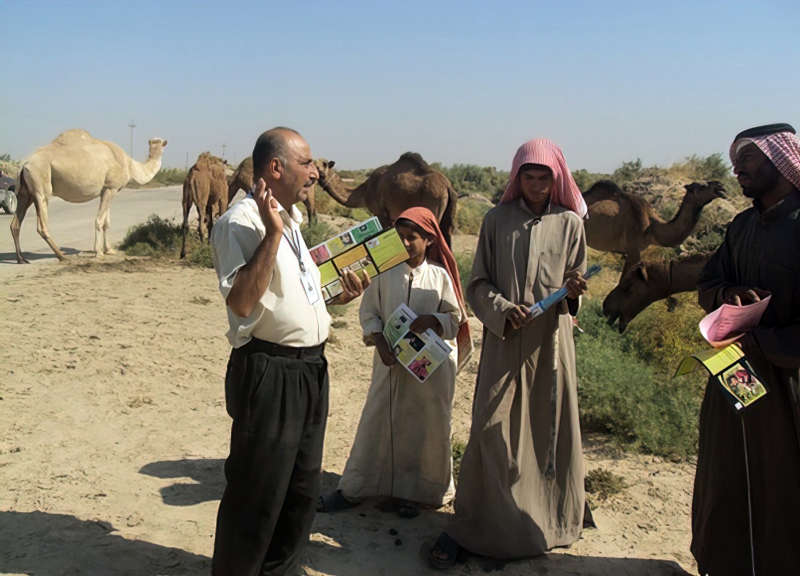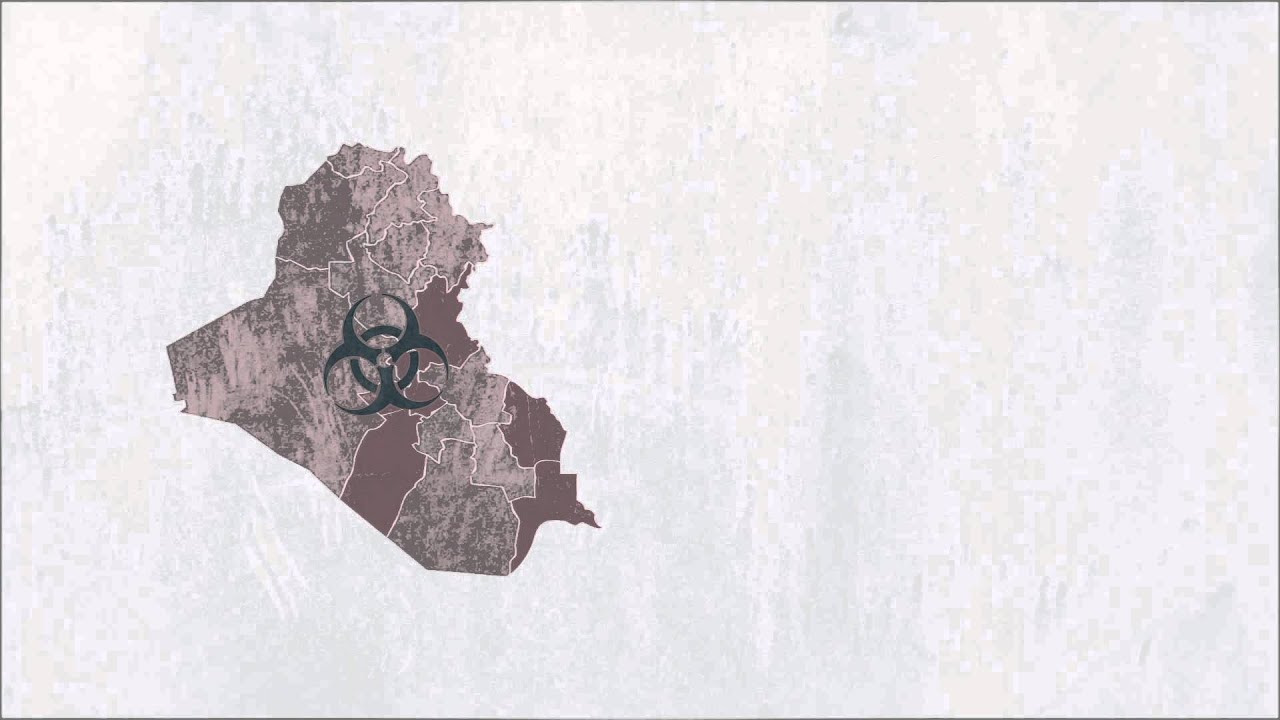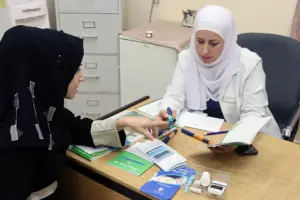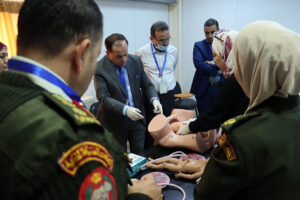An aunt and her niece await an initial newborn checkup at a public healthcare center in Amman. Photo credit: Zoya Shehadeh
Middle East
The Middle East has made great strides in developing health systems in the region and improving the health status of its populations. The region’s mostly low- and middle-income countries have transitioned from a high communicable disease burden, including tuberculosis, neglected tropical diseases, and vaccine preventable disease, to rising rates of non-communicable disease including cardiovascular disease, hypertension, diabetes, and cancer. Key health indicators – including life expectancy and maternal, neonatal, and under-five mortality – have improved significantly. Ongoing conflicts in the region threaten progress and refugee health challenges continue to strain health systems. Maternal and reproductive health needs are a priority to ensure population health and sustained development, as is access to, and quality of, health services.
URC’s early international work began in the Middle East and has continued to through a range of global and bilateral projects. URC has supported ministries of health across the Middle East and North Africa to strengthen health systems, expand health care to marginalized populations including women and children, improve the delivery of primary health care, institutionalize quality improvement processes and quality standards in health care, and build health workforce capacity including in conflict situations.

URC currently implements the USAID Health Services Quality Accelerator Activity in Jordan to accelerate and sustain improvements in reproductive, maternal, newborn, and child health outcomes through Jordan’s public and private health sectors.
Countries
URC and IBI, A URC Company (IBI), are actively working on projects in the following countries:
Jordan
Visit the Jordan page to learn more about our work there.



